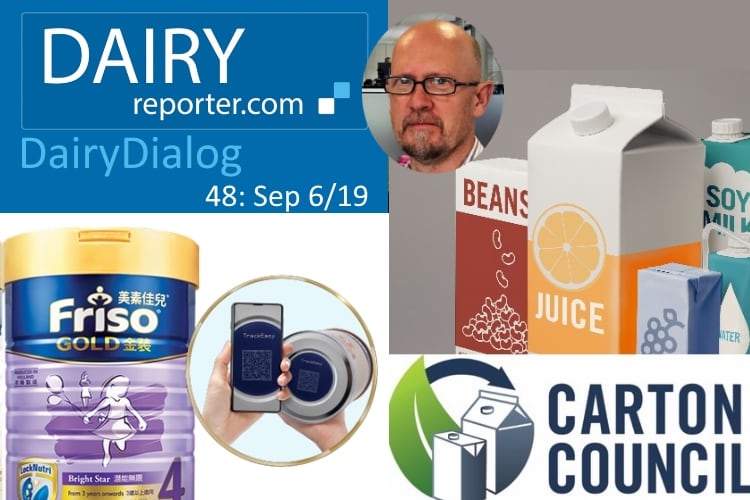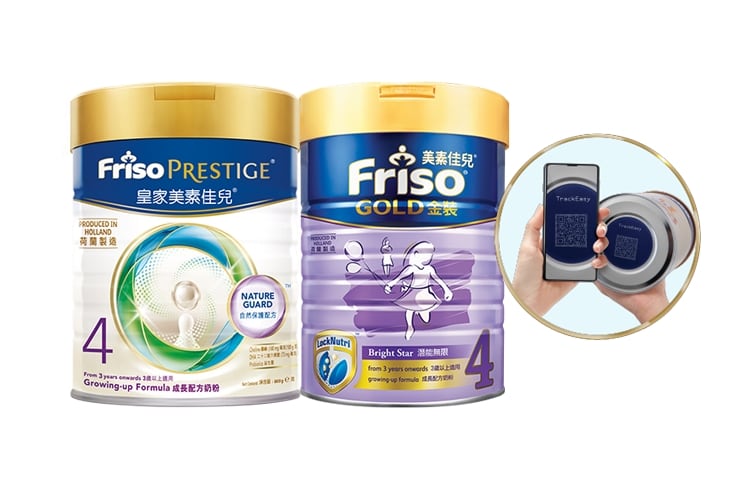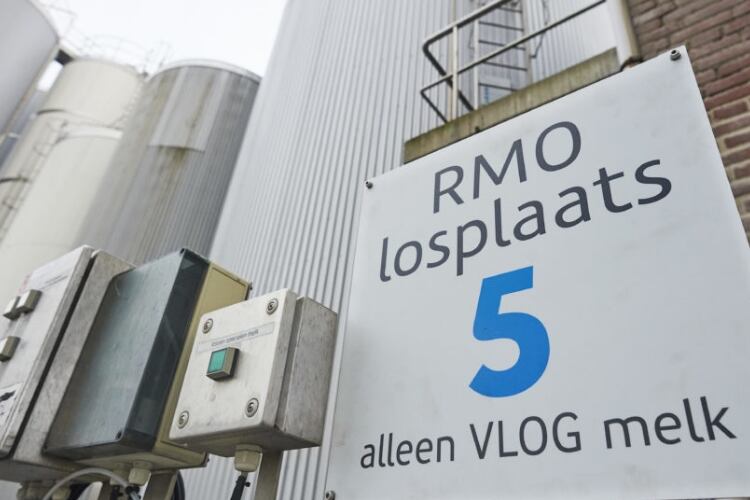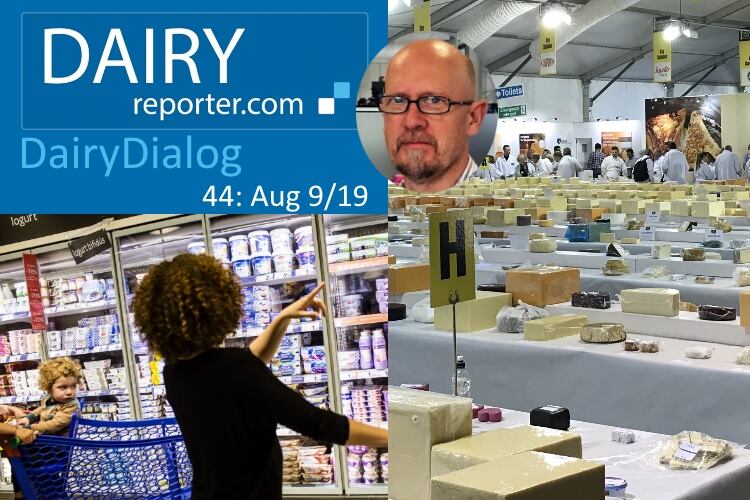Kezzler and FrieslandCampina launch first traceability and consumer engagement system for infant formula
Norwegian-based serialization technology company Kezzler is working with Dutch dairy company FrieslandCampina to provide global traceability services for their infant formula brand, Friso.
Industry-first smart-packaging solution TrackEasy, was launched in Hong Kong in August and is currently being rolled out in mainland China.
The project involves the application of unique, secure and traceable identities to every single product. By tracking the products from farmer to consumer, the solution supports confidence in Friso infant formula by eliminating concerns regarding fraudulent products in-market and enables FrieslandCampina to engage with consumers directly.
A unique QR code is printed on the can for traceability purposes. A second code will be placed inside, providing a channel for direct consumer engagement, including loyalty programs and promotions.
TrackEasy is integrated with China’s WeChat platform, allowing consumers to scan directly within the app.
Integrated program
Friso is manufactured in The Netherlands and exported to China. As the product moves through the supply chain, data from upstream production partners, such as dairy farmers, and downstream participants, such as importers and distributors, is associated with each unit using Kezzler´s traceability solution.
Kezzler's traceability platform is integrated with FrieslandCampina´s existing IT infrastructure and logistical systems, leaving possibilities for continued rollout.
Christine C. Akselsen, CEO of Kezzler, said, “We live in a world of complex, global supply chains. To properly ensure food safety, brands need to have full visibility from ingredients through to consumption for every product sold.
“We are proud to support FrieslandCampina in their mission to bring safe and sustainable products to consumers. I am convinced that this level of transparency will soon be expected for all consumer products.”
Hans Wessels, senior project manager at FrieslandCampina, said, “Ensuring our consumers can have full confidence in FrieslandCampina brands is paramount. This is why we have adopted Kezzler's serialization technology to deliver supply chain visibility for our infant formula brands, as well as providing a way for stakeholders throughout the supply chain to validate their products in real-time.”
In the first phase of the project, Kezzler is serializing all Friso products destined for China and the solution will then be rolled out to other markets.
Carton Council pushes recycling
The Carton Council has spent 10 years in the US working to educate consumers on the recycling process. The council is comprised of four carton manufacturers “committed to building a sustainable infrastructure for carton recycling nationwide.”
Elopak, SIG Combibloc, Evergreen Packaging and Tetra Pak guide communities on the best ways to sort food and beverage cartons and increase recycling access. In August Mason-Dixon conducted a national recycling poll on behalf of the Carton Council.
The survey found that while 85% reported that they recycle, 65% of those that do are either unsure (21%) of what happens to the materials, or don’t believe (44%) that they are being recycled at all.
Carla Fantoni, VP of communications at Carton Council, said, “We commissioned this research to better understand the impact, if any, on consumers’ attitudes and behavior surrounding recycling. It is reassuring to see a commitment to recycling, even when consumers are unsure of what happens to the materials.
“This reinforces that we, as an industry, need to work together to ensure recycling is actually occurring and show consumers what happens to the recyclables after they leave their curbs, removing their skepticism.”
Cartoned dairy products like milk and plant-based milk alternatives also face struggles from recycling misinformation. Fantoni advised that it’s best for dairy producers to increase their own consumer education with on-pack instructions and recycling icons to reassure customers on proper disposal.




